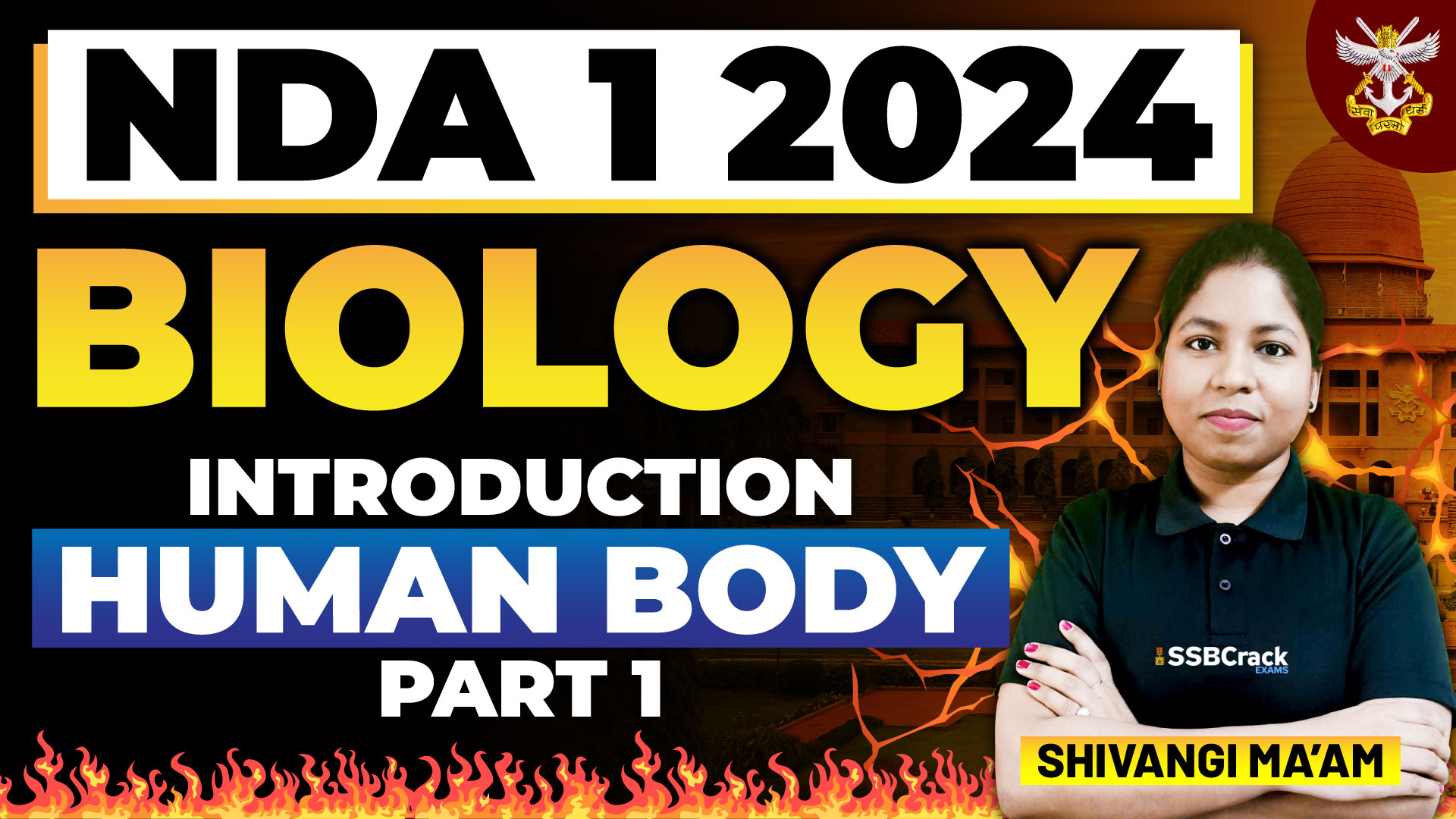The human body is a marvel of complexity and organization, comprising trillions of cells working together to sustain life. Understanding the structure, function, and organization of the human body is essential for success in exams like the National Defence Academy (NDA), which often includes questions on biology and anatomy. In this article, we provide a comprehensive introduction to the human body, covering its major organ systems and physiological processes.
- Respiratory System: The respiratory system is responsible for the exchange of gases between the body and the environment. It includes the nose, throat, trachea, bronchi, and lungs. Oxygen from the air is taken in through the respiratory tract and transported to the bloodstream, while carbon dioxide, a waste product of metabolism, is removed from the body through exhalation.
- Digestive System: The digestive system processes food and absorbs nutrients to provide energy and support growth and repair. It includes the mouth, esophagus, stomach, small intestine, large intestine, liver, gallbladder, and pancreas. Digestive enzymes break down food into smaller molecules that can be absorbed into the bloodstream, while waste products are eliminated from the body through the rectum and anus.
- Endocrine System: The endocrine system regulates bodily functions through the release of hormones into the bloodstream. It includes glands such as the pituitary, thyroid, adrenal, and pancreas. Hormones act as chemical messengers, controlling processes such as growth, metabolism, and reproduction.
In conclusion, a basic understanding of the human body is essential for success in exams like the NDA, which often include questions on biology and anatomy. By familiarizing yourself with the major organ systems and physiological processes of the human body, you can better prepare yourself for these exams and gain a deeper appreciation for the complexity of the human organism.







